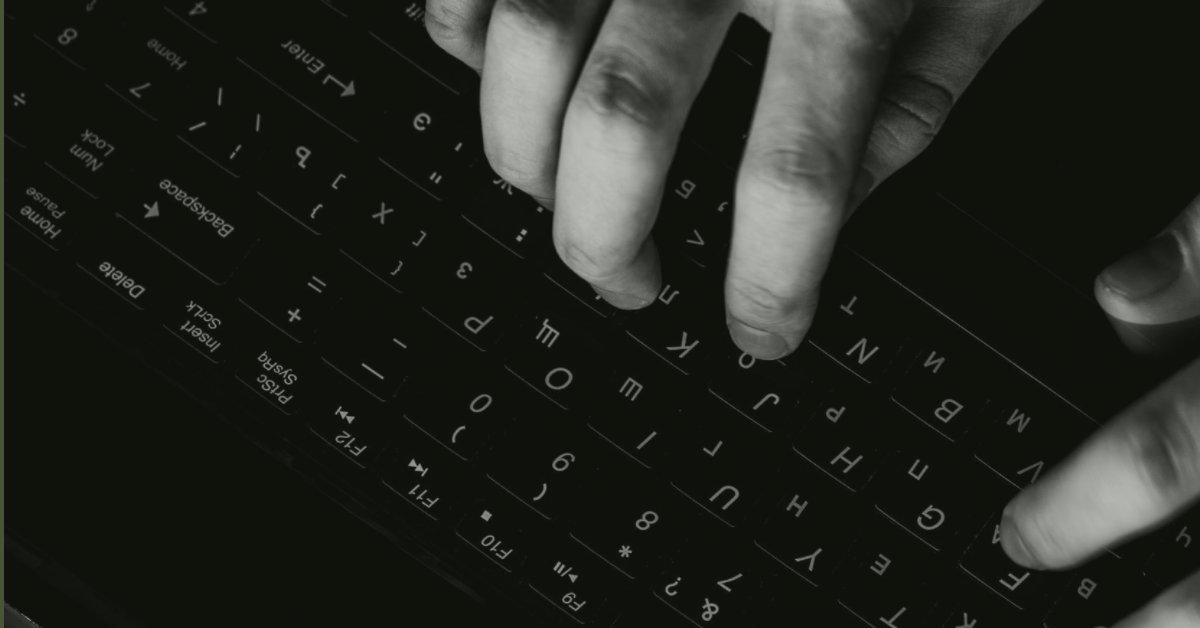The Historical Misuse of Technology: Beyond Deepfake Concerns
In our age of deepfakes and digital manipulation, it's crucial to remember that technology's misuse is not a new phenomenon. This blog delves into the historical context of technology abuse, examining how it predates deepfake concerns and offering insights into ethical technology use.

The rapid advancement of technology has brought about transformative changes in our lives. From the way we communicate and work to how we access information and entertainment, technology has become an integral part of our daily existence. However, as we grapple with the challenges posed by deepfakes and digital manipulation today, it's essential to recognize that the misuse of technology is not a recent development. Throughout history, technology has been a tool of abuse and control, and understanding this historical context can shed light on the broader issues surrounding the ethical use of technology.
The Early Days of Tech Misuse
Long before deepfakes became a buzzword, technology was already being harnessed for nefarious purposes. One of the earliest examples of technology misuse can be traced back to the invention of the printing press in the 15th century. While this invention revolutionized the spread of knowledge, it was also used to disseminate propaganda and seditious material, leading to social and political unrest.
Similarly, the telegraph, which connected distant parts of the world in the 19th century, was exploited for fraudulent activities and misinformation campaigns. These historical instances remind us that the misuse of technology has deep roots and is not solely a product of our digital age.
The Twentieth Century: A Century of Propaganda
As we move closer to the 20th century, we find even more significant examples of technology being used for abuse and control. The emergence of radio and television brought about new opportunities for propaganda and manipulation. Governments and authoritarian regimes across the world utilized these media to shape public opinion, often through censorship and biased reporting.
The rise of mass media during this period also gave birth to the concept of "fake news," a term that has become all too familiar in our contemporary discussions. Misinformation and disinformation campaigns were rampant, and technology played a central role in their dissemination.
The Digital Revolution: A Double-Edged Sword
The late 20th century saw the advent of the internet and the beginning of the digital revolution. While these technological advancements opened up new avenues for communication and information sharing, they also brought fresh challenges. The misuse of technology became more sophisticated, with cyberattacks, identity theft, and online harassment becoming commonplace.
Social media platforms, designed to connect people across the globe, quickly became breeding grounds for misinformation and divisive content. The ease with which information could be spread on these platforms made it challenging to discern fact from fiction, and technology's potential for abuse continued to evolve.
Deepfakes: A Modern Challenge
Over the past few years, people have become increasingly worried about the rise of deepfake technology. Deepfakes use artificial intelligence to create hyper-realistic videos and audio recordings that can convincingly mimic real individuals. While deepfakes have the potential for entertainment and creative applications, they also pose serious risks, including political manipulation, blackmail, and the erosion of trust in media and information.
However, it's crucial to recognize that deepfakes are just one facet of a much broader issue—the historical misuse of technology. To address this challenge effectively, we must look beyond deepfake concerns and consider the larger context of technology's impact on society.
Ethical Considerations in Technology Use
As we navigate the complexities of modern technology, it's imperative to emphasize ethical considerations in its use. The historical misuse of technology serves as a stark reminder that technological advancements are not inherently good or evil. Instead, it's how we choose to wield these tools that determines their impact.
To promote ethical technology use, individuals, organizations, and governments must prioritize the following:
-
Media Literacy: Education on media literacy is crucial to help individuals discern credible information from misinformation. Teaching critical thinking skills and fact-checking techniques can empower people to navigate the digital landscape more effectively.
-
Regulation and Accountability: Governments and tech companies must collaborate to establish regulations and accountability mechanisms that prevent the misuse of technology. This includes measures to combat cyberattacks, disinformation campaigns, and deepfake proliferation.
-
Transparency: Tech companies should prioritize transparency in their algorithms and content moderation processes. Understanding how information is curated and presented on digital platforms can help mitigate the spread of misinformation.
-
Digital Ethics: Encouraging discussions on digital ethics within the tech industry and academia can lead to the development of ethical guidelines for the creation and use of technology.
-
User Empowerment: Empowering users with control over their data and privacy settings is essential. Individuals should have the ability to make informed choices about how their data is used and shared.
Conclusion
While the rise of deepfakes has rightfully raised concerns about the misuse of technology, it's essential to view this issue within a broader historical context. Technology has been a tool of abuse and control throughout history, and addressing this challenge requires a multifaceted approach that encompasses media literacy, regulation, transparency, digital ethics, and user empowerment.
As we navigate the digital age, we must remain vigilant and proactive in addressing the ethical implications of technology. By learning from history and actively shaping the future of technology, we can strive to create a digital landscape that empowers individuals and fosters trust, rather than one that perpetuates abuse and manipulation.
ALSO READ
Switzerland Considers Social Media Ban for Youth: A Debate on Child Safety
Supreme Court Denies Plea in Modi Social Media Post Case
Anthony Joshua's Knockout Blow to Social Media Sensation Jake Paul
Modi's Social Media Dominance: Top X Posts of the Month
Trump Ventures Beyond Social Media: A $6 Billion Fusion Merger










